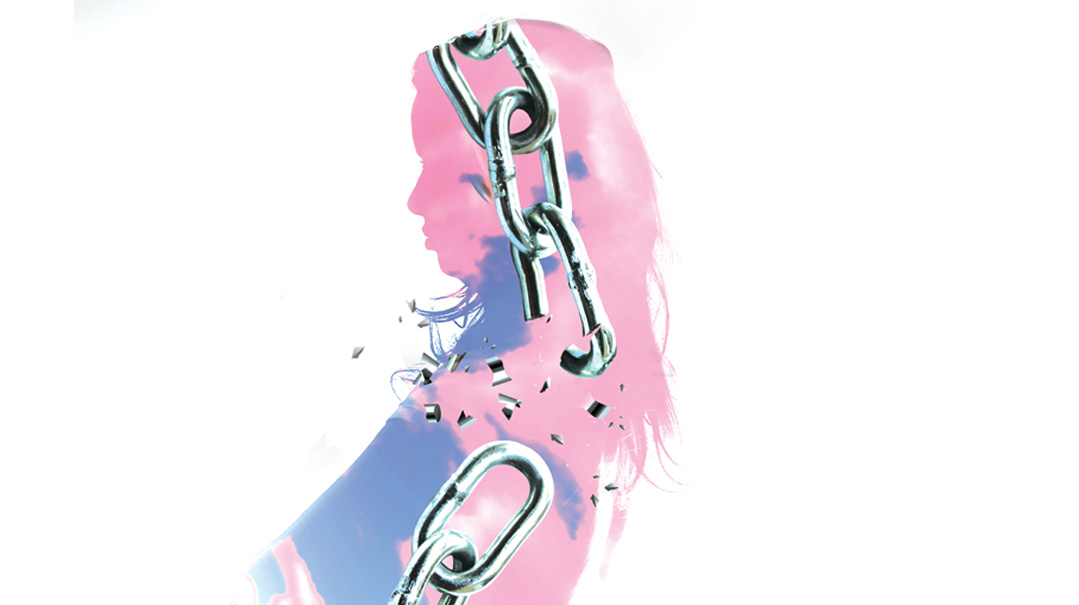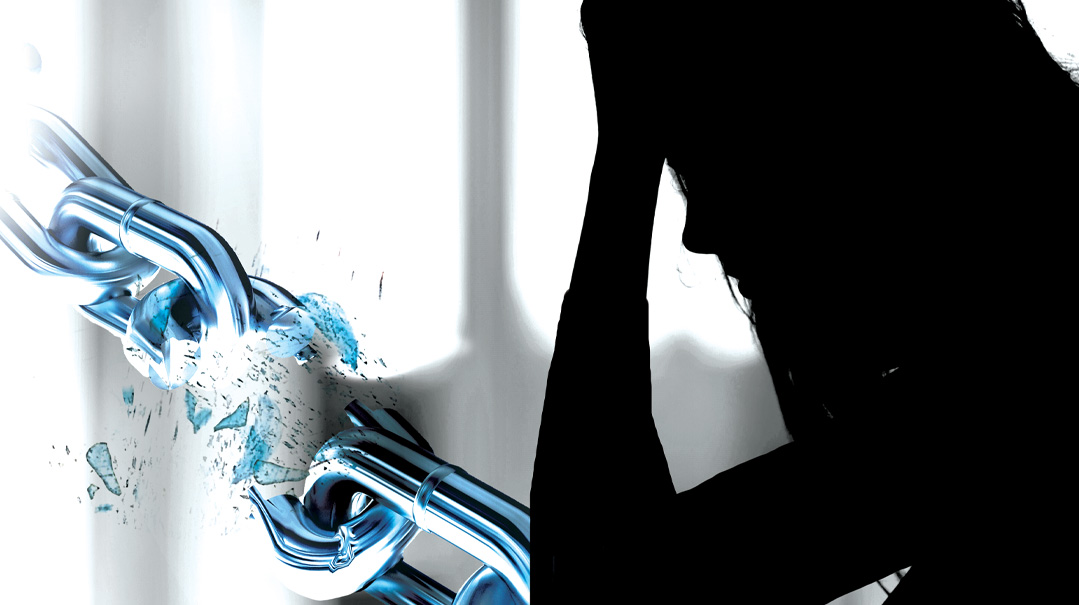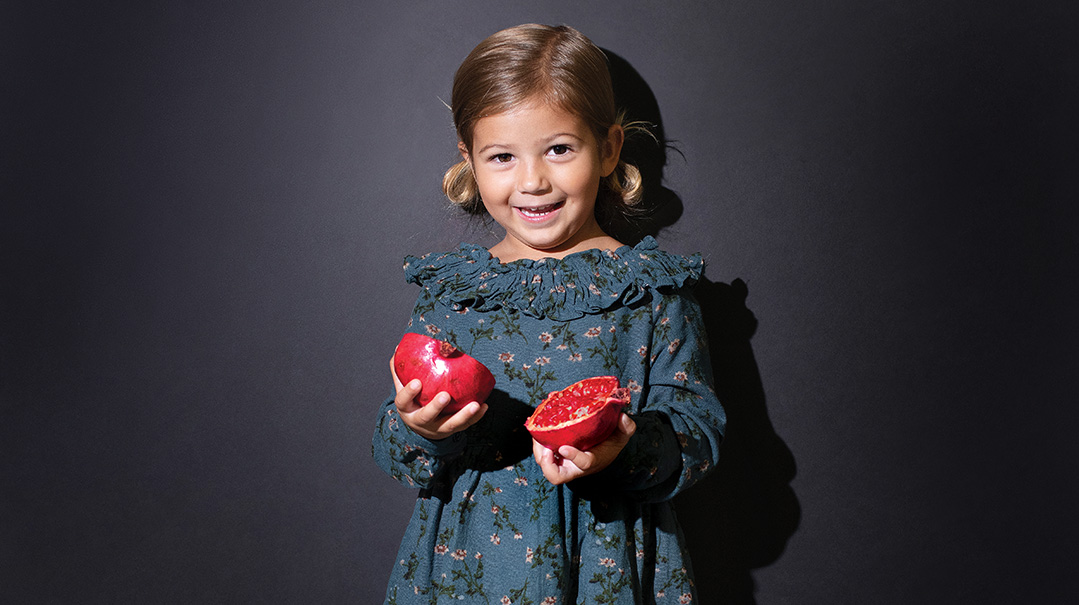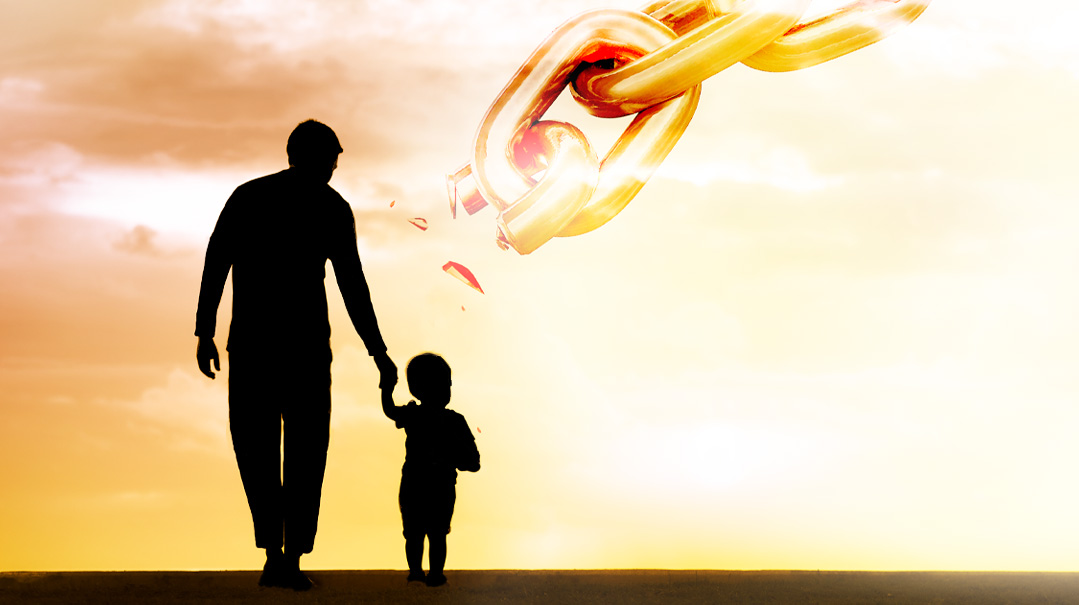Fault Lines

It was absolutely, positively, unquestionably Ma’s fault
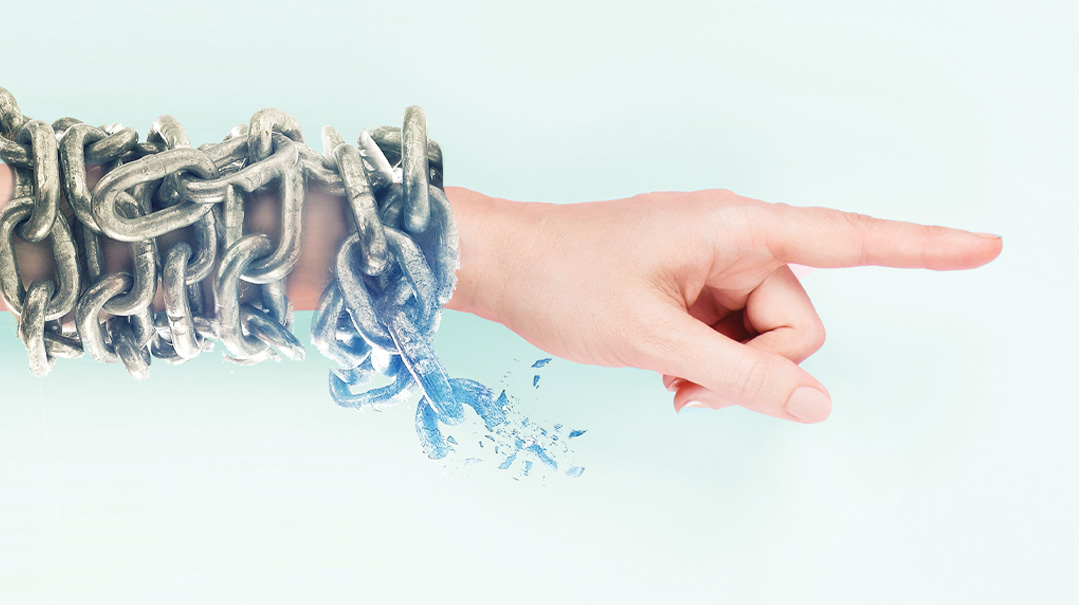
I
grew up in a home where my mother took the blame for everything — and I do mean everything. If I couldn’t find my shoes, it became my mother’s fault. If my brother was kicked out of class, or my sister’s test wasn’t signed, it was my mother’s fault. If our book report or diorama wasn’t completed by the day it was due, it was my mother’s fault, and certainly, certainly, if my father left for work without his morning coffee or missed an important meeting, it was absolutely, positively, unquestionably Ma’s fault.
Like everything else.
My mother’s guilt over her family’s problems or discomfort was practically in her DNA. She and her two sisters were raised in a home saturated with guilt. The reality of having survived the horrors of the Holocaust, of being kept alive when innocent babies and choshuve rabbanim and entire families were murdered, was something my grandmother could not make peace with.
Her daughters instinctively absorbed that survivor’s guilt and ran with it to the next level: It was their responsibility to fix, fix, fix, to make sure their parents never had one iota of anguish, to ensure that everything was wonderful, happy, hunky-dory, always and for everyone, and if it wasn’t… well, just ask my mother and she’ll tell you.
It was all her fault.
The guilt that plagued my mother (plagued? Why the past tense? It continues to this day!) when she couldn’t be everything for everyone and do everything people needed was — is — all-encompassing. How guilty she feels when she can’t host one family because another asked first! How guilty she felt when she missed a granddaughter’s birth because she was overseas at a grandson’s bar mitzvah.
As my mother’s daughter, I dutifully followed in my mother’s footsteps when setting up my own adult life. Credit card missing? My fault. Kid left without breakfast? My fault. When a friend had a crisis the week I had corona, how guilty I felt that I didn’t have her kids over!
So, when my sister, who lives two hours away, had a baby — three weeks before her son’s bar mitzvah — I miserably went about my week trying to figure out how to help her.
“I feel so guilty,” I cried to my mother. “I should be sending her supper every night! I should have her kids in my house!” My mother understood me perfectly, yet hastened to placate me and tell me why surely it wasn’t my fault.
“I feel sooo guiiiiiilty!!!” I wailed to my sister-the-kimpeturin, following my script. “I should be sending you supper every night!”
“Stop with your ridiculous guilt!” my sister snapped, shutting me down fast and hard. “Guilt means you did something wrong. You made a mistake, and now you feel guilty about it. Did you do something wrong?”
“Well, yeah,” I stammered, “of course I did — I didn’t send you—”
“You didn’t do something wrong. You’re sad that you live far away and can’t help me, okay, so you feel bad, but that’s not a reason to feel guilty. We should feel bad when we can’t help someone, and we should feel guilty when we do the wrong thing. Feeling bad and feeling guilty aren’t the same, and you need to learn the difference. YOU,” she repeated, ending her rant and coming up for air, “need to learn the difference.”
Huh?
Oh.
Ohhhhh. Ohmigosh. Light bulb moment. Neon, dazzling light bulbs with sirens and blaring brass. I could feel bad… and it didn’t mean I was guilty? I hadn’t done anything wrong?
I hadn’t?
Well. This was something to which I needed to start paying attention.
And I have. I’ve begun to notice the times I’m doing the right thing — but maybe at the expense of doing something else. Or when there is a situation that is beyond my control and I (unrealistically?) wish I could change it. That, in my genetic makeup, has always been cause for guilt.
But now… now I try to focus on determining whether I’m doing the right thing, possibly at the expense of something else, which can make me feel bad that I can’t do it all, or if I had done the wrong thing, which meant that guilt was in place so that I could actually take responsibility for my poor choices and do better next time.
It’s mind-blowing. Life changing. Astonishing how liberating and empowering that little bit of honest self-awareness is.
And the best part is that my daughters, who have grown up with a bogged-down, guilt-ridden mother, now hear their mother talk out loud in such situations. We walk through the process, asking ourselves if we’re making the proper decision right here, right now, and if so, we can and should feel bad about what might not get done, but feel strengthened by the knowledge that this is the right thing. This process takes away false, misplaced guilt. Amazing.
And if, despite my best intentions at breaking this cycle, at learning the difference between feeling bad and feeling guilty, my children still follow our long-standing family minhag of being guilt-ridden females…
… I’ll know whose fault that is.
(Originally featured in Family First, Issue 811)
Oops! We could not locate your form.

